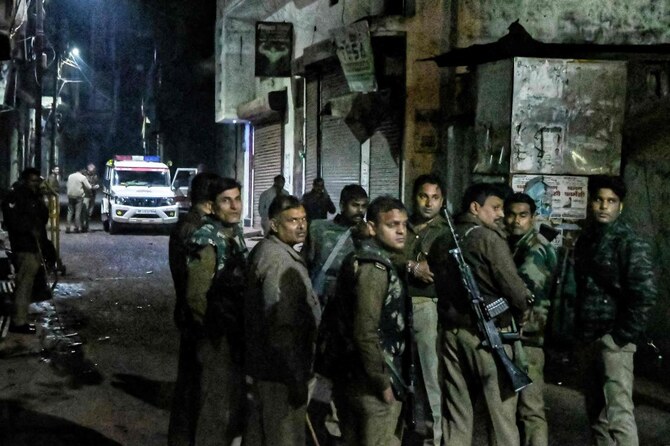Authorities shut down schools and suspended internet services in the northern Indian city of Sambhal Monday, following violent clashes that left four people dead during a court-ordered survey of a 16th-century mosque that Hindu activists claim was built over an ancient temple.

The violence erupted Sunday when nearly 1,000 Muslim protesters gathered outside the Shahi Jama Masjid to oppose the survey, which was initiated after a Hindu lawyer petitioned courts claiming the mosque was constructed on a destroyed temple site. Police said they deployed tear gas after protesters began throwing stones, with social media videos showing burning vehicles and officers using firearms to control the crowd.
“Some miscreants in the crowd resorted to violence, forcing us to use minor force and tear gas to restore order,” said local police officer Krishna Kumar Vishnoi. The survey proceeded despite the unrest.
Local administrator Aunjaneya Kumar Singh announced sweeping restrictions, including school closures and a ban on public gatherings. The government has also prohibited outsiders, social organizations, and public representatives from entering the city without permission through November 30.
The incident highlights escalating religious tensions in India, where Hindu nationalist groups, often linked to Prime Minister Narendra Modi’s ruling party, have increasingly challenged the status of historic Muslim sites. The petitioners cite historical texts claiming Mughal emperor Babur destroyed a Hindu temple to build the mosque in 1529.
The controversy echoes similar disputes across India, gaining momentum after Modi inaugurated a Hindu temple built on the ruins of a medieval mosque in Ayodhya earlier this year. Critics see these campaigns as part of a broader effort to transform India from a secular democracy into a Hindu state.
The survey’s supporters argue it seeks to uncover historical truths, while opponents say it violates the Places of Worship Act of 1991, which preserves religious sites’ status as they existed at India’s independence in 1947.
“These confrontations reflect deeper tensions over India’s religious heritage and national identity,” said Rajesh Kumar, a political analyst in New Delhi. “The government’s handling of such disputes will have lasting implications for religious harmony.”



